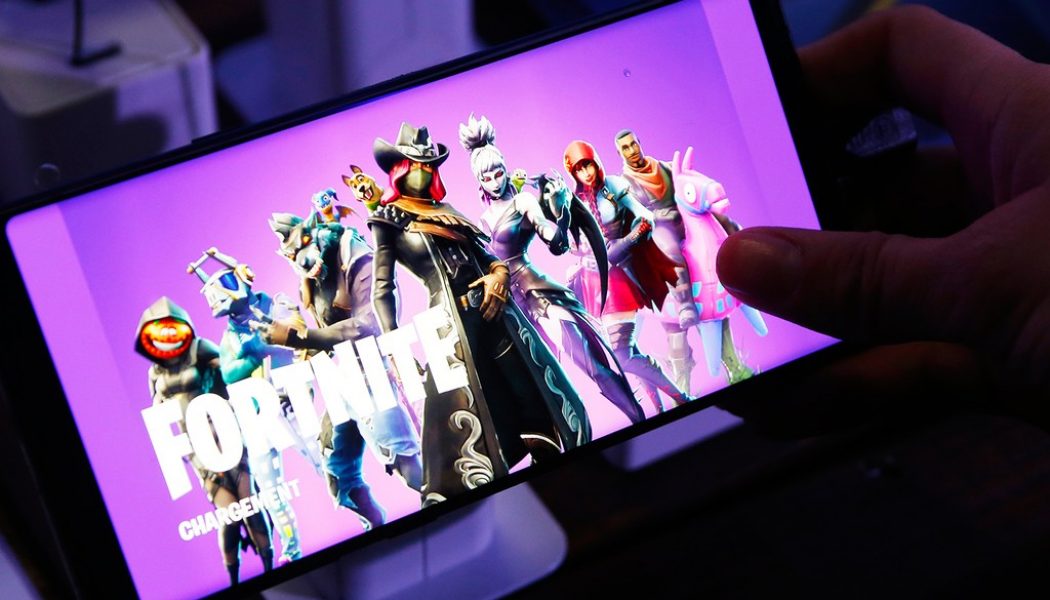Spotify is backing Fortnite developer Epic Games in its new clash with Apple and the tech giant’s App Store, highlighting its own lawsuit over similar issues.
After Apple removed Fortnite from the App Store on Wednesday because Epic Games had introduced a way for players to purchase its virtual “V-bucks” currency outside the payment marketplace, Epic Games filed a lawsuit that could have legal ramifications in the music industry.
“We applaud Epic Games’ decision to take a stand against Apple and shed further light on Apple’s abuse of its dominant position,” a Spotify spokesperson said in a statement emailed to Billboard. “Apple’s unfair practices have disadvantaged competitors and deprived consumers for far too long. The stakes for consumers and app developers large and small couldn’t be higher and ensuring that the iOS platform operates competitively and fairly is an urgent task with far-reaching implications.”
This latest skirmish started Wednesday when Epic Games promoted a special offer to Fortnite players offering a 20% discount on in-game “V-bucks” purchases for anyone using the company’s direct payment system. That deal incentivized direct purchases over those through Apple and Google marketplaces, which charge a 30% fee to developers on transactions. “If Apple or Google lower their fees on payments in the future,” the post stated, “Epic will pass along the savings to you.”
Hours later, Fortnite was no longer available to download via the App Store and Epic Games hastily filed a lawsuit that characterizes Apple as a “behemoth seeking to control markets, block competition, and stifle innovation” and challenging its alleged “unfair and anti-competitive actions” via the App Store and Apple’s proprietary payment processing system. The suit asks for injunctive relief that will “allow fair competition in these two key markets that directly affect hundreds of millions of consumers and tens of thousands, if not more, of third-party app developers.”
Apple has responded to the suit by noting that Epic Games violated App Store rules by failing to garner approval for its direct payment system beforehand. “Epic has had apps on the App Store for a decade, and have benefited from the App Store ecosystem — including its tools, testing, and distribution that Apple provides to all developers,” reads a company statement supplied to The Hollywood Reporter. “Epic agreed to the App Store terms and guidelines freely and we’re glad they’ve built such a successful business on the App Store. The fact that their business interests now lead them to push for a special arrangement does not change the fact that these guidelines create a level playing field for all developers and make the store safe for all users.”
On Thursday (Aug. 13), Epic Games released a video parody of Apple’s famous “1984” ad inside Fortnite that attacks Apple’s practices and encourages players to use the hashtag #FreeFortnite to demonstrate their support. Epic Games CEO Tim Sweeney has publicly blasted Apple in the past, including in a July 28 tweet that read in part, “Apple is one of the greatest companies that has ever existed, perhaps the greatest. But they’re fundamentally wrong in blocking competition and choice on devices they make, and that holds up entire fields of technological progress.”
All of this seemed to resonate with Spotify, which has levied similar claims against Apple since 2015 when the streaming service began encouraging new customers to sign up for its Premium service directly on the Spotify website. The following year, Spotify announced its decision to turn off the option to pay for its service via Apple’s in-app system altogether, leading Apple to reject a new Spotify iOS update instituting the change. Spotify subsequently sent a letter to Apple’s top attorney and several U.S. lawmakers claiming that Apple made the move in an effort to stifle competition for its own streaming service, Apple Music, which had been introduced a year prior; Apple retorted that Spotify had violated App Store guidelines concerning in-app purchases.
The conflict ramped up further in March 2019, when Spotify CEO Daniel Ek announced his company had filed a formal complaint against Apple with the European Commission. In the complaint, Spotify alleged App Store rules “purposely limit choice and stifle innovation at the expense of the user experience — essentially acting as both a player and referee to deliberately disadvantage other app developers.” Ek again accused Apple of attempting to gain “an unfair advantage” in the streaming space, effectively weaponizing the App Store to hurt Spotify and other competitors.
Apple responded to that complaint with claims that Spotify “wraps its financial motivations in misleading rhetoric” and wants to “keep all the benefits of the App Store ecosystem, including the substantial revenue that they draw from the App Store’s customers, without making any contributions to that marketplace.” In turn, Spotify released a statement slamming Apple as a “monopolist” that believes “Spotify’s users on iOS are Apple customers and not Spotify customers, which goes to the very heart of the issue with Apple.” In June, the European Union announced it had opened a formal antitrust investigation into Apple and the App Store.
The dustup between Apple and Epic Games comes just two weeks after Apple CEO Tim Cook appeared before a House Judiciary subcommittee via videoconference to defend the company against charges it engaged in anticompetitive practices. During the hearing, Cook denied those accusations, claiming the company applies its rules evenly across the App Store and takes payment commissions that are similar to its competitors.
Apple is additionally the subject of an ongoing antitrust lawsuit by a group of iOS users who have accused the company of unfairly driving up app prices in the App Store. In May 2019, Apple suffered a significant defeat in that case when the U.S. Supreme Court ruled those users had a right to move forward, rejecting Apple’s contention that they should not be able to sue because they were buying apps from third party developers instead of Apple.
Fortnite, meanwhile, has proven to be an immensely impactful virtual performance venue for musical acts. Marshmello, Diplo, deadmau5 and others have all performed in the game. And when Travis Scott hosted a concert in April, his surreal 10 minute show drew 12.3 million concurrent players at its peak — setting a new record as Fortnite’s largest-ever in-game gathering. In all, 27.7 million unique players from around the globe viewed five total airings of the “Astronomical” performance over the course of three days and multiple time zones, totalling 45.8 million views in all with repeat attendees. The official YouTube version has clocked another 86 million views with millions more tuning in on the gaming-focused livestreaming platform Twitch.
Scott also sold millions of very real dollars worth of in-game merchandise and debuted a new song, “The Scotts” with Kid Cudi, that earned 7.45 million streams in its first day on Spotify and was the platform’s top debut of the year, landing the track a No. 1 on the Billboard Hot 100 chart.










